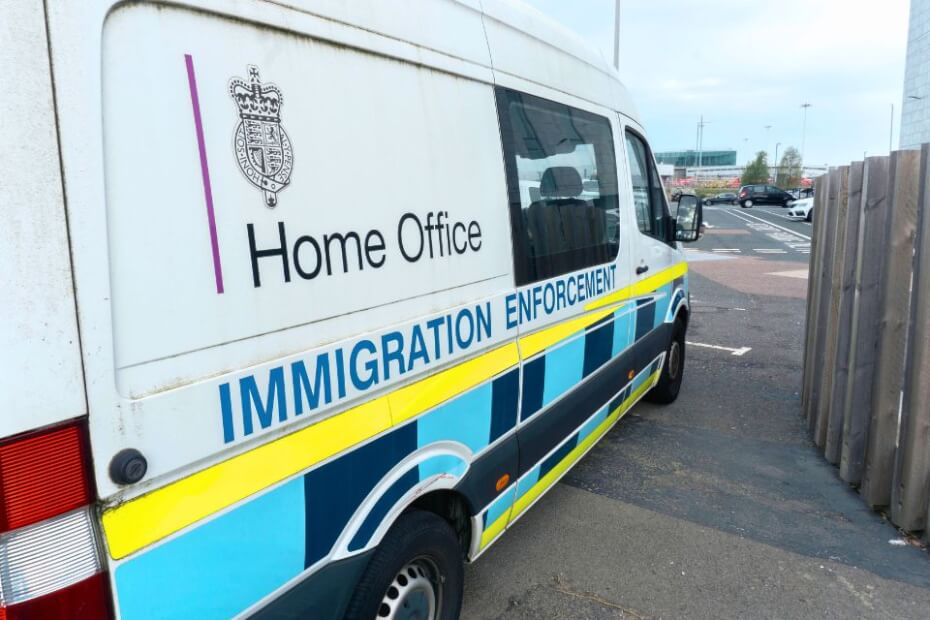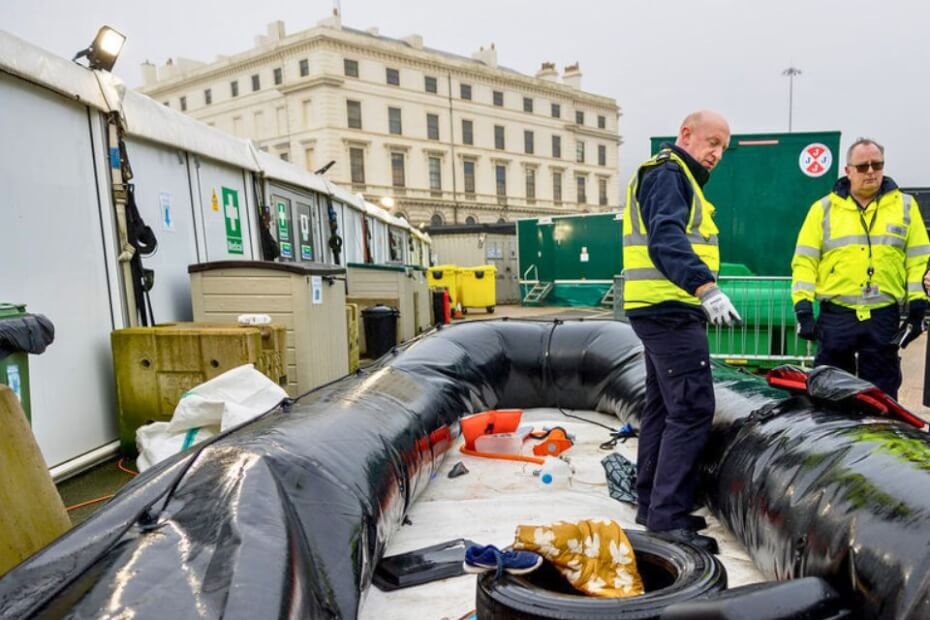
The British Government has reported a sharp increase in migration returns and illegal working arrests since July 2024.
Following a major crackdown after the election, nearly 13,500 individuals with no legal right to stay in the country have been removed.
This marks the United Kingdom’s (UK’s) highest number of migrant returns in five years.
At the same time, arrests for illegal working have risen by 25 percent, reflecting the government’s tougher stance on immigration enforcement.
“Illegal working is a blight on our economy,” UK Home Secretary Yvette Cooper said in a news release.
“It is deeply exploitative and undercuts those employers who do the right thing and play by the rules,” she added.
Migration returns are at a five-year high
The Home Office credits the record number of migration returns to changes made since the election.
More staff, better technology, and international partnerships have helped speed up removals and enforce immigration rules more effectively.
Home Secretary Yvette Cooper shared that the government has boosted the capabilities of the UK’s immigration enforcement officers.
This ensures that they have the proper tools to further combat illegal working and expose the hidden economy.
It will also help expose the false promises that criminal smuggling gangs use to encourage people to cross the Channel in small boats.
“If you employ people illegally, you will face consequences. The rules must be respected and enforced,” Cooper stressed.
The Home Office has redeployed 1,000 staff members to immigration enforcement roles.
Since July, enforcement teams have organized 33 charter flights to return individuals to Europe, Africa, Asia, and South America.
Additionally, the government has been targeting criminal gangs that enable illegal immigration.
The Home Office recently launched a campaign warning potential migrants about the dangers of trusting smugglers.
It highlights real-life stories of those who faced exploitation and unsafe conditions.
More illegal working inspections and arrests

The crackdown on illegal working has led to a 25 percent rise in arrests compared to the same period last year.
Immigration enforcement teams have conducted 3,188 illegal working visits since July—an increase of 34 percent.
These operations target industries where illegal working is most common, such as construction sites, nail bars, car washes, and supermarkets.
From 5 July to 31 October 2024, teams targeting unscrupulous employers conducted 3,188 visits and made 2,299 arrests.
This number is up from 2,371 visits and 1,836 arrests during the same period in 2023.
To support these efforts, the Home Office is investing in new technology:
- £5 million for body-worn cameras for 1,200 officers to collect evidence during raids.
- £3 million for mobile fingerprint scanners, allowing faster identification of individuals.
These tools make enforcement operations quicker, safer, and more effective.
Cooper shared that increased collaboration has led to high-profile arrests, showing the government’s commitment to enforcing the laws.
“We have the chance now to turn that around,” the Home Secretary said in a news release on bringing down criminal gangs and preventing deadly boat crossings.
She added that it is also an opportunity to restore order and impose fair rules that are appropriately enforced.
Stricter penalties for employers who break the rules
The government has made it clear that businesses hiring unauthorized workers will face serious consequences.
Since July, six employers have been prosecuted for employing illegal workers—double the number compared to the last two years.
Last month, an enforcement operation, Operation Tornado, targeted nail bars and convenience stores across the UK.
Enforcement officers made 235 visits, arresting 154 people of 19 different nationalities for suspected illegal working.
Over 50 businesses received penalty notices amounting to up to £4 million for hiring workers without proper checks, with fines of £60,000 per worker.
Stricter penalties now include businesses being banned from sponsoring foreign workers for at least two years.
The government aims to hold employers accountable to prevent worker exploitation and protect law-abiding competitors.
Working with other countries to stop illegal migration

The British Government is also strengthening partnerships with other countries to address illegal migration at its roots.
Cooper recently signed a joint statement with Iraq to tackle people smuggling and organized crime networks across the region and in Europe.
The Home Secretary also landed on a pivotal deal with Germany that could lead to legislation reform to stop small boat crossings.
These agreements focused on breaking up smuggling networks and cutting off the financial support that fuels organized immigration crime.
The government believes that international collaboration and improved enforcement can prevent illegal crossings and ease pressure on the UK’s immigration system.
What comes next?
Supporters see the measures as necessary to protect jobs and stop exploitation, while others worry about the humanitarian impact on migrants and their families.
The UK Government, however, says it remains committed to its plan, promising further progress in the months ahead.
By using advanced technology, increasing resources, and working closely with international partners, officials believe they can keep illegal immigration under control.

